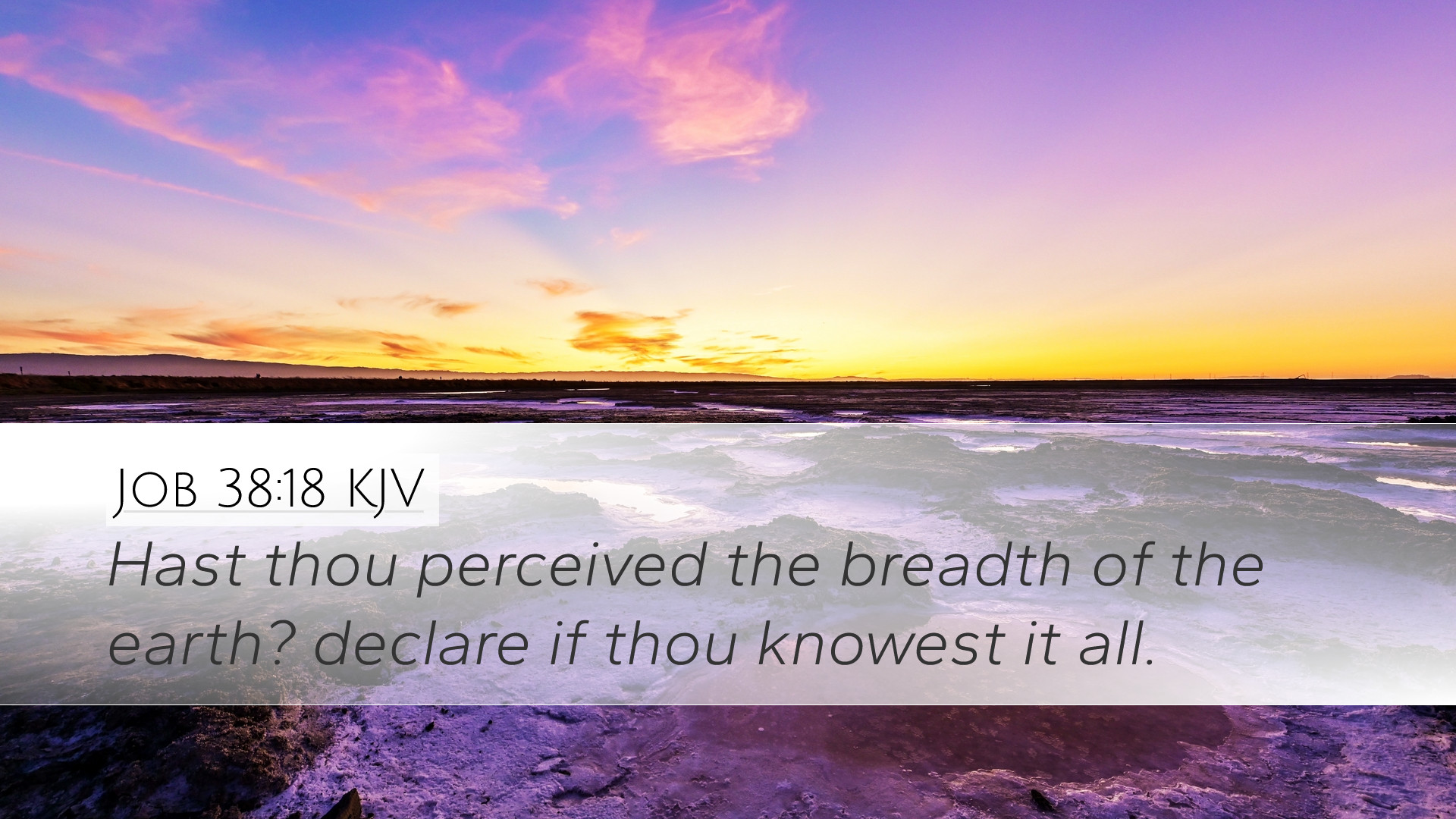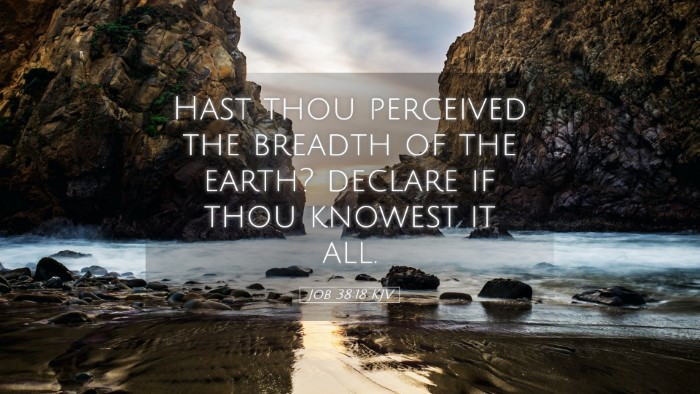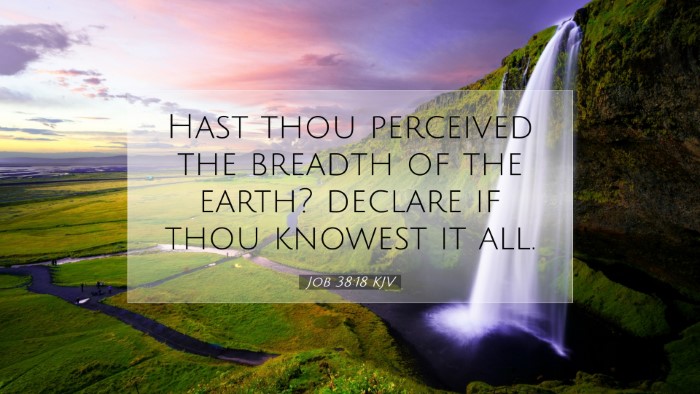Bible Commentary on Job 38:18
Verse: "Hast thou perceived the breadth of the earth? declare if thou knowest it all." (Job 38:18, KJV)
Introduction
Job 38 begins a significant transition in the narrative of the Book of Job. After a lengthy dialogue among Job and his friends, God Himself speaks to Job out of the whirlwind. This section of scripture represents a profound moment of divine revelation. In Job 38:18, God poses a rhetorical question that challenges human understanding and invites reflection on the vastness of creation and the limitations of human knowledge.
Contextual Analysis
The context of Job 38 involves Job's lamentations and the questions he raises during his suffering. Following the dialogues filled with various theological assertions from his friends, God's response reframes the discussion by emphasizing His sovereignty and omnipotence.
The Nature of God's Question
God asks Job if he has perceived the "breadth of the earth." This inquiry serves multiple purposes:
- To provoke thought: God does not seek a literal answer but aims to make Job reflect on his understanding of creation.
- To highlight human limitations: This question emphasizes that His ways are far beyond human comprehension.
- To illustrate divine authority: God's omniscience and control over the earth are underscored, challenging Job's complaints and assertions.
Insights from Matthew Henry
Matthew Henry points out that God's questions serve to humble Job. In addressing the breadth of the earth, Henry notes the immense complexity and order of creation, which surpasses human understanding. He emphasizes how God's wisdom is displayed in the vastness and intricacy of the natural world, highlighting Job's limited perspective.
Insights from Albert Barnes
Albert Barnes elaborates on the rhetorical nature of God's question. He argues that by asking about the breadth of the earth, God implies that Job has no real knowledge of the vastness of creation and, therefore, cannot fully understand God's governance. Barnes suggests that the breadth of the earth symbolizes the greater depths of divine knowledge and wisdom, which humans cannot grasp.
Insights from Adam Clarke
Adam Clarke observes that this verse represents a challenge to Job's previous assertions about justice and God’s governance. Clarke posits that God is asserting His supremacy over all creation and implies that Job should recognize his own limitations in understanding such vast truths. He argues that the query serves to instruct Job in humility and in acknowledging human ignorance in the face of divine knowledge.
Theological Implications
This verse speaks to several vital theological themes:
- God's Sovereignty: The inquiry regarding the breadth of the earth reinforces the belief in God's absolute rule over all creation.
- The Limitations of Human Understanding: It underscores humanity's limited capacity to comprehend the full scope of God's creation and His purposes.
- God's Invitation to Trust: By recognizing our limitations, believers are invited to place their trust in God's wisdom rather than their own understanding.
Practical Applications
For pastors, theologians, and students, Job 38:18 offers rich ground for application:
- Encouraging Humility: This verse can be used to promote humility among congregants, reminding them that there are mysteries of God’s creation that they may not fully understand.
- Fostering Trust in God’s Plan: Leaders can emphasize the importance of trusting God’s plan, particularly during times of suffering or uncertainty.
- Enhancing Biblical Understanding: This passage serves as a springboard for deeper discussions about God’s nature, creation, and humanity's relationship to the divine.
Conclusion
Job 38:18 is a profound reminder of the greatness of God and the limitations of human understanding. By recognizing the vastness of the earth and the wisdom behind its creation, we are called to approach God with awe and reverence. This verse demonstrates that in moments of questioning and suffering, the ultimate answer lies not necessarily in explanations but in recognizing God's sovereignty and the mystery of His designs.


